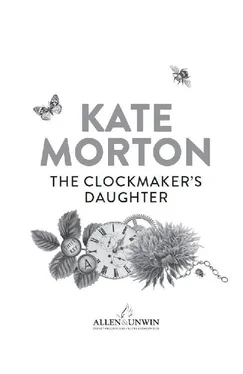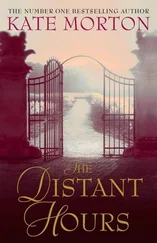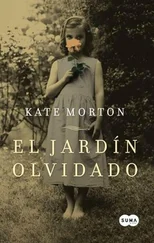Kate Morton - The Clockmaker's Daughter
Здесь есть возможность читать онлайн «Kate Morton - The Clockmaker's Daughter» весь текст электронной книги совершенно бесплатно (целиком полную версию без сокращений). В некоторых случаях можно слушать аудио, скачать через торрент в формате fb2 и присутствует краткое содержание. Год выпуска: 2018, Издательство: Allen & Unwin, Жанр: Старинная литература, на английском языке. Описание произведения, (предисловие) а так же отзывы посетителей доступны на портале библиотеки ЛибКат.
- Название:The Clockmaker's Daughter
- Автор:
- Издательство:Allen & Unwin
- Жанр:
- Год:2018
- ISBN:нет данных
- Рейтинг книги:4 / 5. Голосов: 1
-
Избранное:Добавить в избранное
- Отзывы:
-
Ваша оценка:
- 80
- 1
- 2
- 3
- 4
- 5
The Clockmaker's Daughter: краткое содержание, описание и аннотация
Предлагаем к чтению аннотацию, описание, краткое содержание или предисловие (зависит от того, что написал сам автор книги «The Clockmaker's Daughter»). Если вы не нашли необходимую информацию о книге — напишите в комментариях, мы постараемся отыскать её.
The Clockmaker's Daughter — читать онлайн бесплатно полную книгу (весь текст) целиком
Ниже представлен текст книги, разбитый по страницам. Система сохранения места последней прочитанной страницы, позволяет с удобством читать онлайн бесплатно книгу «The Clockmaker's Daughter», без необходимости каждый раз заново искать на чём Вы остановились. Поставьте закладку, и сможете в любой момент перейти на страницу, на которой закончили чтение.
Интервал:
Закладка:
When she received the letter from Messrs Holbert and Matthews, Lucy had written back by return post to make an appointment to meet at noon that Friday; and, as the first flurry of December snow fell lightly outside the window, she found herself sitting on one side of a large sombre desk in the Mayfair office of Mr Matthews Sr, listening as the old lawyer told her that Birchwood Manor – ‘a farmhouse in a little village near Lechlade-on-Thames’ – was now hers.
When the meeting was at a close, he sent her home to Hampstead with a direction that she must let them know when she wished to visit the house so that he could arrange for his son to accompany her to Berkshire. Lucy, with no intention then of visiting Berkshire, had told him that it was far too much to ask. But it was ‘all part of the service, Miss Radcliffe,’ Mr Matthews had said, indicating a large wooden panel on the wall behind him on which in gold cursive lettering was painted:
HOLBERT, MATTHEWS & SONS
Carrying out the wishes of our
clients in death as indeed in life.
Lucy had left the office, her thoughts in an uncharacteristic swirl.
Birchwood Manor.
What a generous gift; what a double-edged sword.
In the days and weeks that followed, when the nights were at their blackest, Lucy had wondered whether Edward had left her the house because on some level, due perhaps to the deep connection they’d once shared, he had guessed. But no, Lucy was too rational to let such an illogical idea take root. For one thing, there was nothing certain to guess; even Lucy did not know for sure. For another, Edward’s thinking had been clear: he had specified within a handwritten letter attached to his will that the house should be used by Lucy to build a school offering education to girls as bright as she had been. Girls who quested for the type of knowledge that was otherwise denied them.
And just as Edward had possessed a gift in life that enabled him to win people over to his way of thinking, in death, too, his words had influence. For although, in the offices of Holbert, Matthews & Sons, Lucy had promised herself that she would sell the house, that she would never again willingly set foot within its walls, almost immediately upon leaving, Edward’s vision seeped into her thoughts and began weakening her better judgement.
Lucy had walked north through Regent’s Park and her gaze had alit upon one little girl after another, each obedient beside her nanny and longing, surely, to do more, to see more, to know more than she was currently permitted. Lucy had a vision of herself shepherding a clutch of pink-cheeked girls with questing spirits and excited voices, girls who did not fit within the moulds that had been ascribed to them; who longed to learn and improve and grow. Over the coming weeks, she thought of little else: she became obsessed with the idea that everything in her life had led her to this point; that there was nothing more ‘right’ than that she should open a school in the twin-gabled house on the bend of the river.
And so, here she was. It had taken five months to reach this point, but she was ready.
‘Do I need to sign something?’ she said as the lawyer led her into the kitchen, where the square pine table was still in place. Lucy half expected to see Emma Stearnes coming through the parlour door, shaking her head in bemusement at whatever strange behaviour she’d witnessed on the other side.
The lawyer looked surprised. ‘What sort of thing?’
‘I’m not certain. I’ve never been given a house before. I presume there is a deed of title?’
‘There is nothing to sign, Miss Radcliffe. The deed, as it were, is done. The papers have been finalised. The house is yours.’
‘Well, then’ – Lucy held out her hand – ‘I thank you, Mr Matthews. It has been a pleasure to meet you.’
‘But, Miss Radcliffe, would you not like me to show you the property?’
‘It won’t be necessary, Mr Matthews.’
‘But having come all this way—’
‘I trust that I am able to stay behind today?’
‘Well, yes, as I said, the house is yours.’
‘Then thank you kindly for accompanying me, Mr Matthews. Now, if you will excuse me, I have much to get on with. There is going to be a school, did you hear? I am going to open a school for promising young ladies.’
But Lucy did not get on at once with preparations for the school. There was something more pressing that she had to do first. A task as awful as it was essential. For five months she had turned it over in her mind. Longer than that, to be honest. For almost twenty years now she had been waiting to discover the truth.
She closed the door behind the young Mr Matthews, whose countenance left little doubt as to his dejection, and watched each step of his retreat from behind the kitchen window. Only when he had cleared the garden path and latched the wooden front gate did Lucy let out the breath that she’d been holding. She turned away from the window and stood for a moment with her back against the glass, surveying the room. Uncanny though it seemed, all was exactly as she remembered. It was as if she had merely stepped out for a walk to the village, become waylaid, and returned two decades later than expected.
The house was quiet, but it did not feel still. Lucy was reminded of a story Edward used to read to her from a book by Charles Perrault, ‘La Belle au bois dormant’, about a princess cursed to sleep within her castle for a hundred years, the inspiration for his Sleeping Beauty painting. Lucy was not a romantic person, but she could almost imagine, as she stood by the kitchen window, that the house knew she was back.
That it had been waiting.
Indeed, Lucy had a most disconcerting sense that she was not alone in the room.
She reminded herself, however – even as the hairs on her forearm tensed – that she was not of a suggestible disposition, and that to begin to fall prey to superstition here and now would be a deeply regrettable slip. Her mind was playing tricks on her; the reason was clear.
Steeling herself to her purpose, she crossed the hallway and started up the central staircase.
The bentwood chair was exactly where she’d last seen it, on the corner of the landing where the stairs made their turn. The chair was angled towards the large glass window overlooking the back garden and beyond it the meadow. Sunlight spilled through the glass and countless motes of dust drifted in unseen currents.
The chair was warm when Lucy sat gently on its edge. The landing itself, too. She remembered now that it had always been so. The last time she had sat here, the house had been filled with laughter and passion; the air had thrummed with creativity.
But not today. It was just Lucy and the house. Her house.
She let the air of the old place settle around her.
Somewhere out there in the great green beyond, a dog was barking.
Closer by, in the Mulberry Room downstairs, the wall clock was keeping count. Lily Millington’s clock, still ticking. Lucy supposed that the lawyer, Mr Matthews, had made sure that it was wound. She still remembered when Edward had bought it: ‘Lily’s father was a clockmaker,’ he’d announced, whisking the package into the hall in Hampstead. ‘I saw this on the wall of a fellow in Mayfair and exchanged it for a commission. I’m going to surprise her.’
Edward had always been a giver of gifts. He thrilled in the gratification of selecting well. Books for Lucy, a clock for Lily Millington – it was he who had given Thurston the rifle: ‘A genuine Baker, carried by a member of the 5th Battalion of the 60th Regiment during the Napoleonic Wars!’
Impossible to believe that she was sitting here now because Edward was dead. That she would never see him again. Somehow she had always supposed that one day he would come home.
Читать дальшеИнтервал:
Закладка:
Похожие книги на «The Clockmaker's Daughter»
Представляем Вашему вниманию похожие книги на «The Clockmaker's Daughter» списком для выбора. Мы отобрали схожую по названию и смыслу литературу в надежде предоставить читателям больше вариантов отыскать новые, интересные, ещё непрочитанные произведения.
Обсуждение, отзывы о книге «The Clockmaker's Daughter» и просто собственные мнения читателей. Оставьте ваши комментарии, напишите, что Вы думаете о произведении, его смысле или главных героях. Укажите что конкретно понравилось, а что нет, и почему Вы так считаете.












